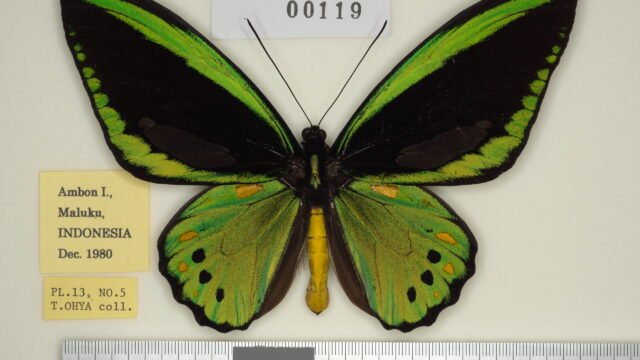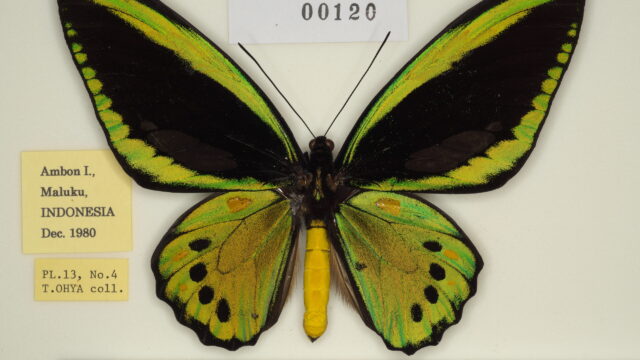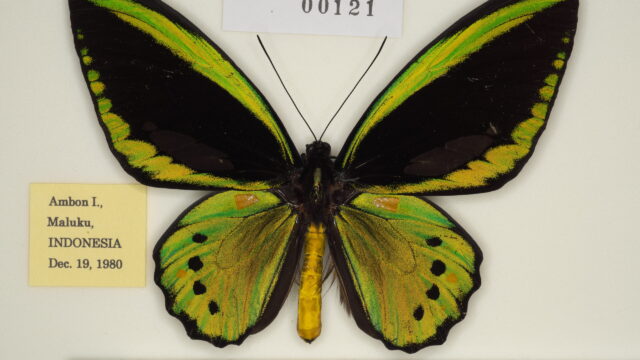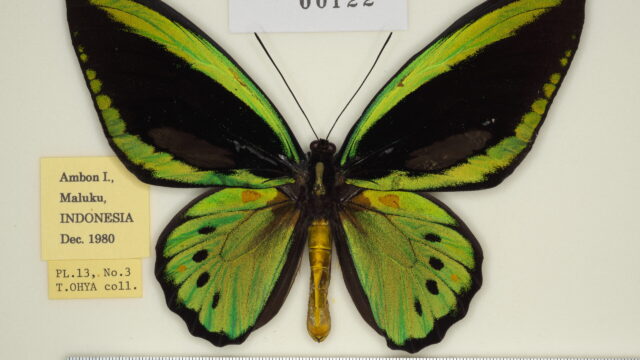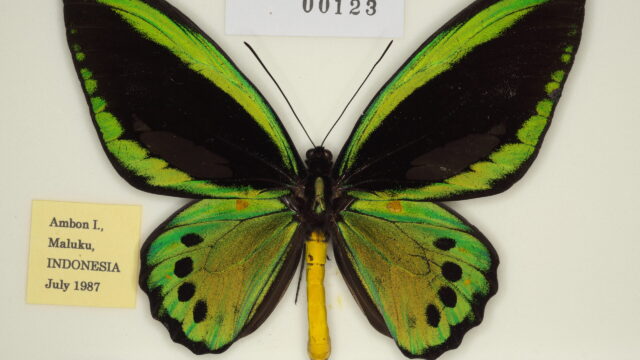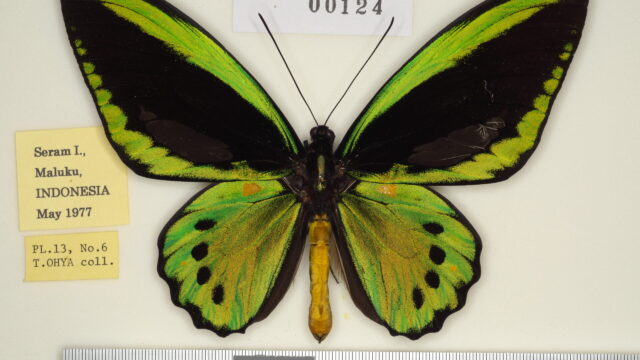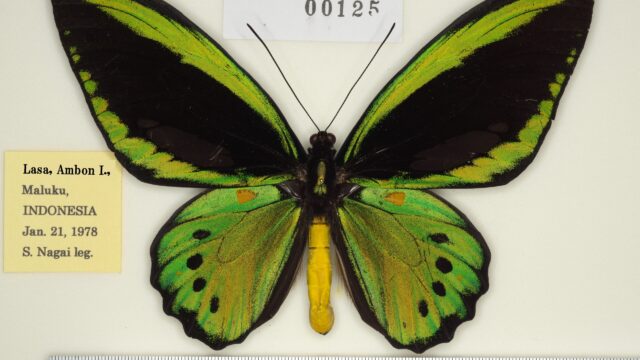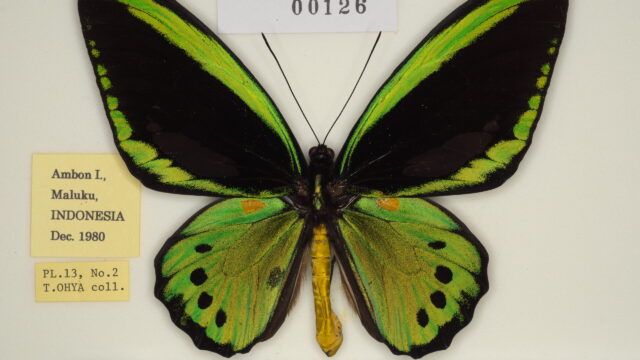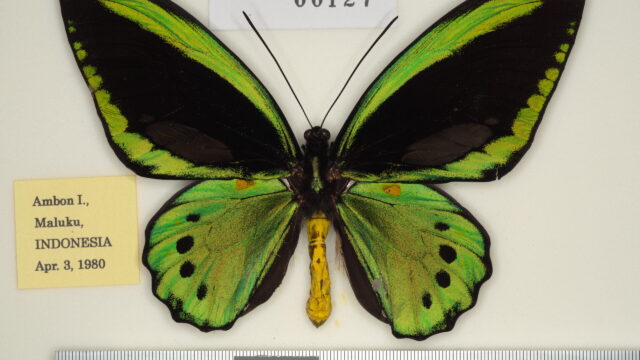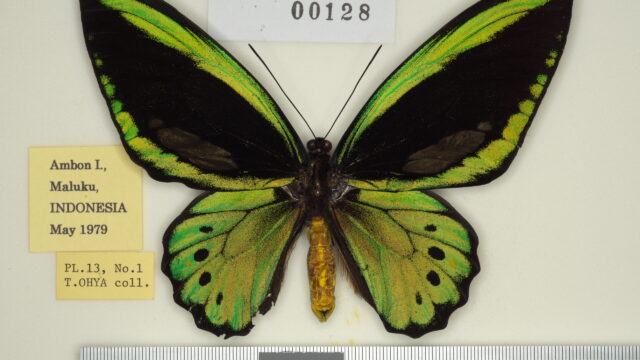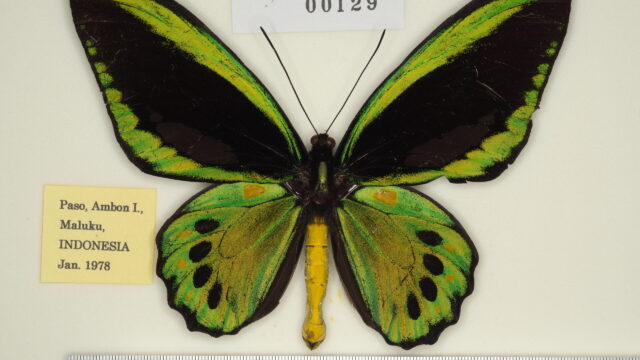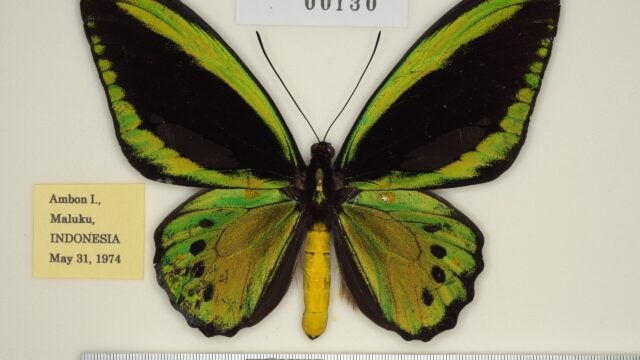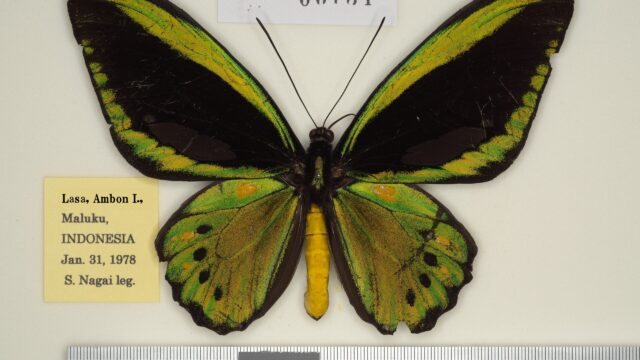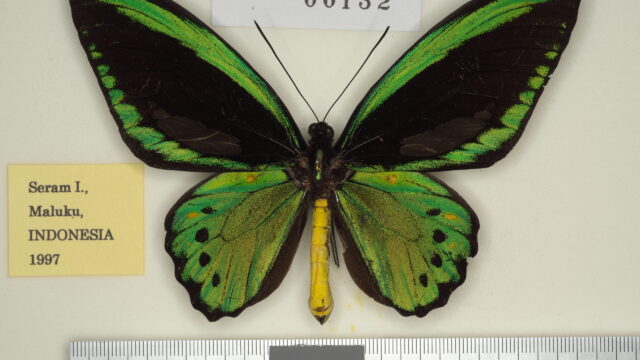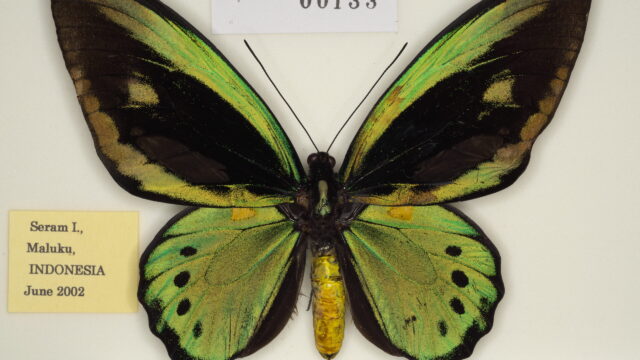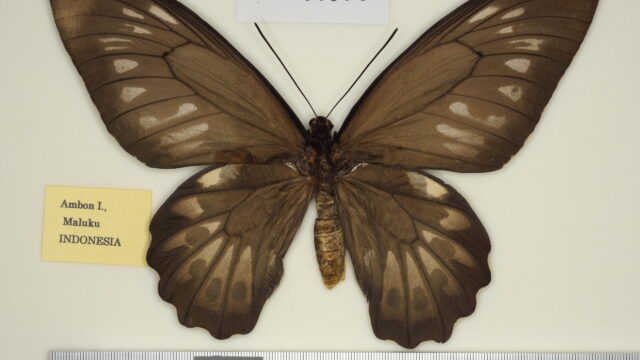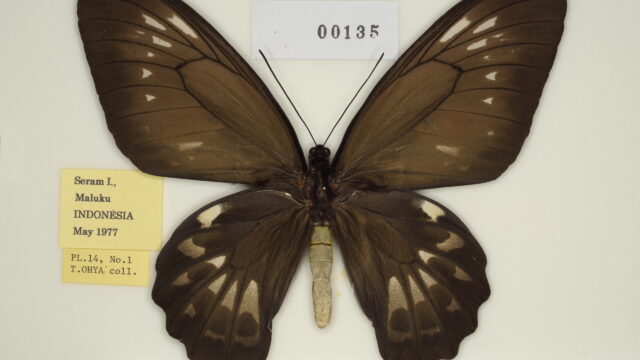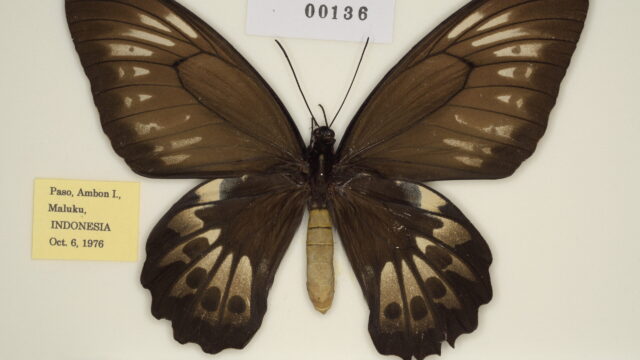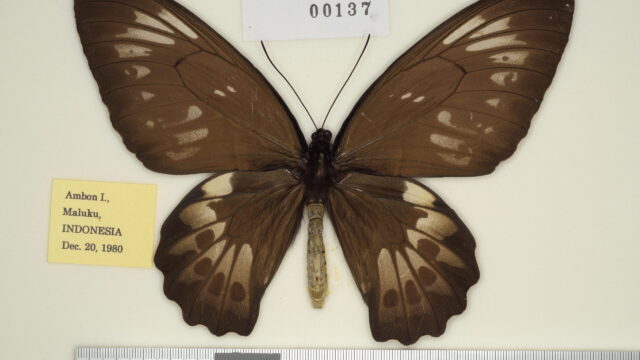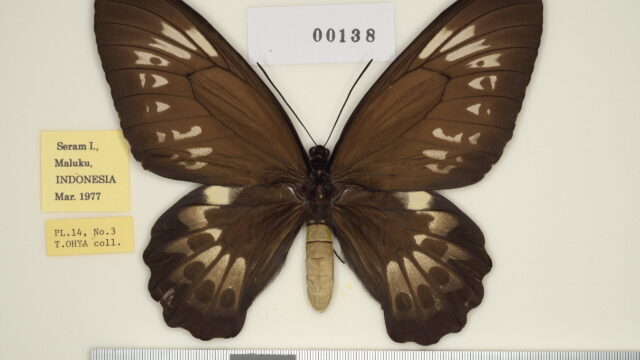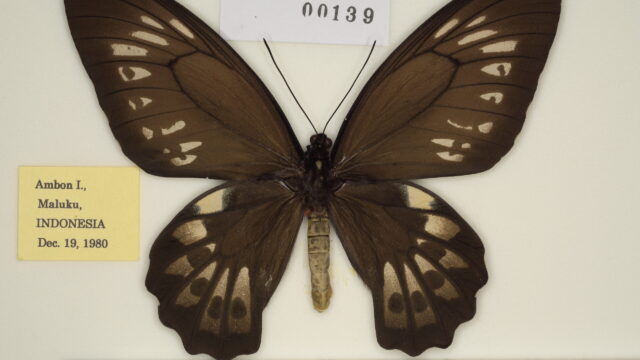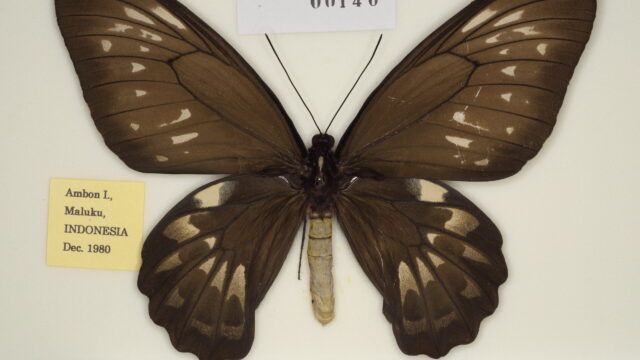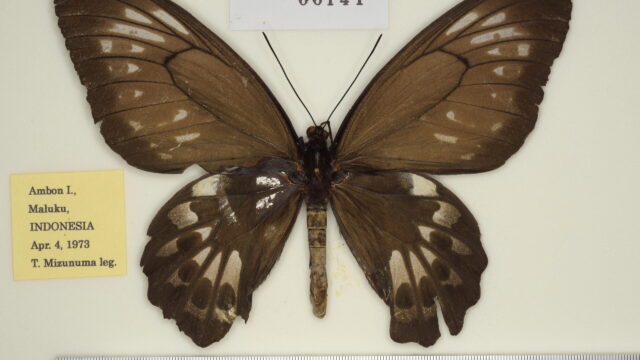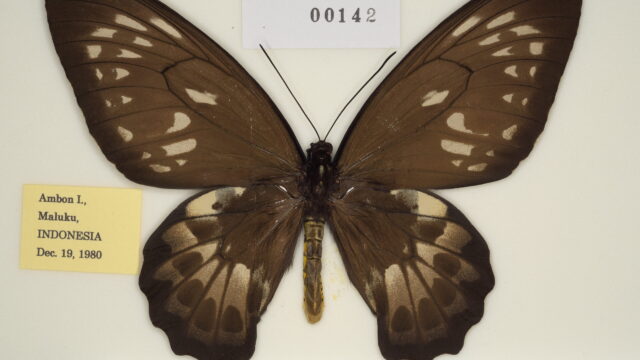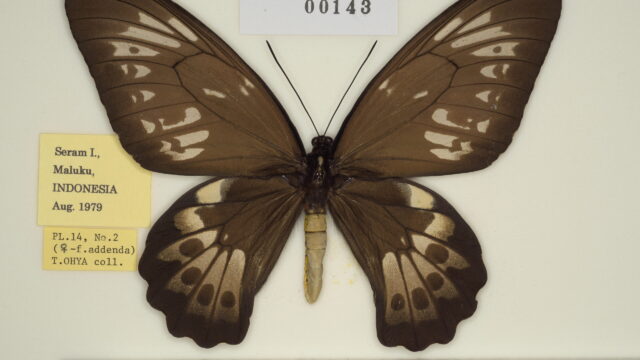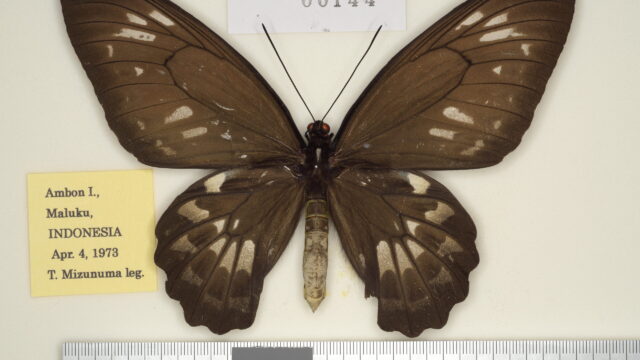- Ssp. priamus (Linnaeus, 1758)29) [♂] [♀: panthous (Linnaeus, 1758)29)]
= panthous (Linnaeus, 1758)29) [♀] (Ambon Is.)
(Distribution) [Map 10]
INDONESIA [Maluku] Ambon Is. (Lasa, Paso, Belakang Soya), Seram Is. (Lowlands), Haruku Is., Saparua Is.
(Episodes of discovery and original description)
The first description of the ♂ of Ambon was given by Vincentius in 1719. In 1742, it was described in Musei imp. Petrograd Vol. 1 (p.664), and in 1745, in Aubenton (Planch. Enlum. t.45). Later, Linnaeus (1758) named Papilio Eques Trojanus Priamus for the ♂ from Ambon and Papilio Eques Trojanus Panthous for the ♀, which was quite different in appearance, and assigned the locality of Panthous to India. He incorrectly described the two ♀♀ of the different species as ♂ and ♀ of the same species Panthous. Namely, the ♀ of Troides hypolitus is the ♂ of Panthous* and the ♀ of Ornithoptera priamus is the ♀ of Panthous. This was a natural mistake, because at that time it was not possible to distinguish between ♂ and ♀, which were so different in appearance that they seemed to be different species. The name priamus refers to Priam, the last king of Troy, and panthous to the Trojan priest of the god Apollo.
*By looking at the abdomen, it seems easy to determine that it is a female, but Linnaeus based his description on an illustration by Clerck, C. A. (1764) and is presumed not to have seen the specimen itself. The illustration can be found in “Original Descriptions of Birdwing Butterflies” (2) Genus Trogonoptera and Genus Troides“, p. 124. (Yasui)
(Characteristics)
This species was first described by Linnaeus in 175829). It is the largest of the subspecies, especially the ♀, which is about 20cm in wingspan.
(Spotted pattern)
♂: Size and pattern (the characteristics mentioned above) are quite stable, with little variations.
♀: FW spots are reduced, and many specimens lack the cell-spot. In addition, HW pale band is obscured by dark scales of brown and is unevenly distributed on the cell side, resulting in a broad marginal band.
(Variation)
♂-f. fasciata Schäffler, 200155): [Aberrant FW/HW pattern] FW with green spot on the end of cell, HW with two rows of submarginal golden spots.
♂-f. viridocellularis Schäffler, 200155): [Aberrant FW pattern] FW with green spot within the black median area. (➡poseidon)
♂-f. aureofasciata Deslisle, 20047): [Aberrant FW pattern] FW with golden spot within the black median area.
♂-f. divina Fruhstorfer, 191318): [FW/HW discoloration] Iridescent areas are bluish colored rather than green on both sides.
♀-f. obscurus Deslisle, 20047): [Aberrant FW/HW pattern] All pale spots are greatly reduced and dark discal spots on HW are enormously enlarged.
♀-f. harukensis Schäffler, 200155): [Aberrant FW/HW pattern] All pale spots are remarkably enlarged.
♀-f. pseudobrunneus Schäffler, 200155): [Aberrant FW pattern] Pale spots of FW are greatly reduced and partially absent.
♀-f. addenda Fruhstorfer, 191318): [Aberrant HW pattern] A pale cell-spot presents on the end of the cell.
f. loc. sclavoi Deslisle, 20098) [♂, ♀]
(Distribution)[Map 10]
INDONESIA [Maluku] Seram Is. (Manusela Mts. (over 2,000m)).
(Characteristics)
Previously, Individuals from the Manusela Mts. had been considered the same ssp. priamus, but it was described as a local form because both sexes are small and somewhat distinctive.
(Spotted pattern)
♂: Green area less bright, somewhat darker, and bluish.
♀: More contrasted, ground color somewhat darker with lighter pale spots.
